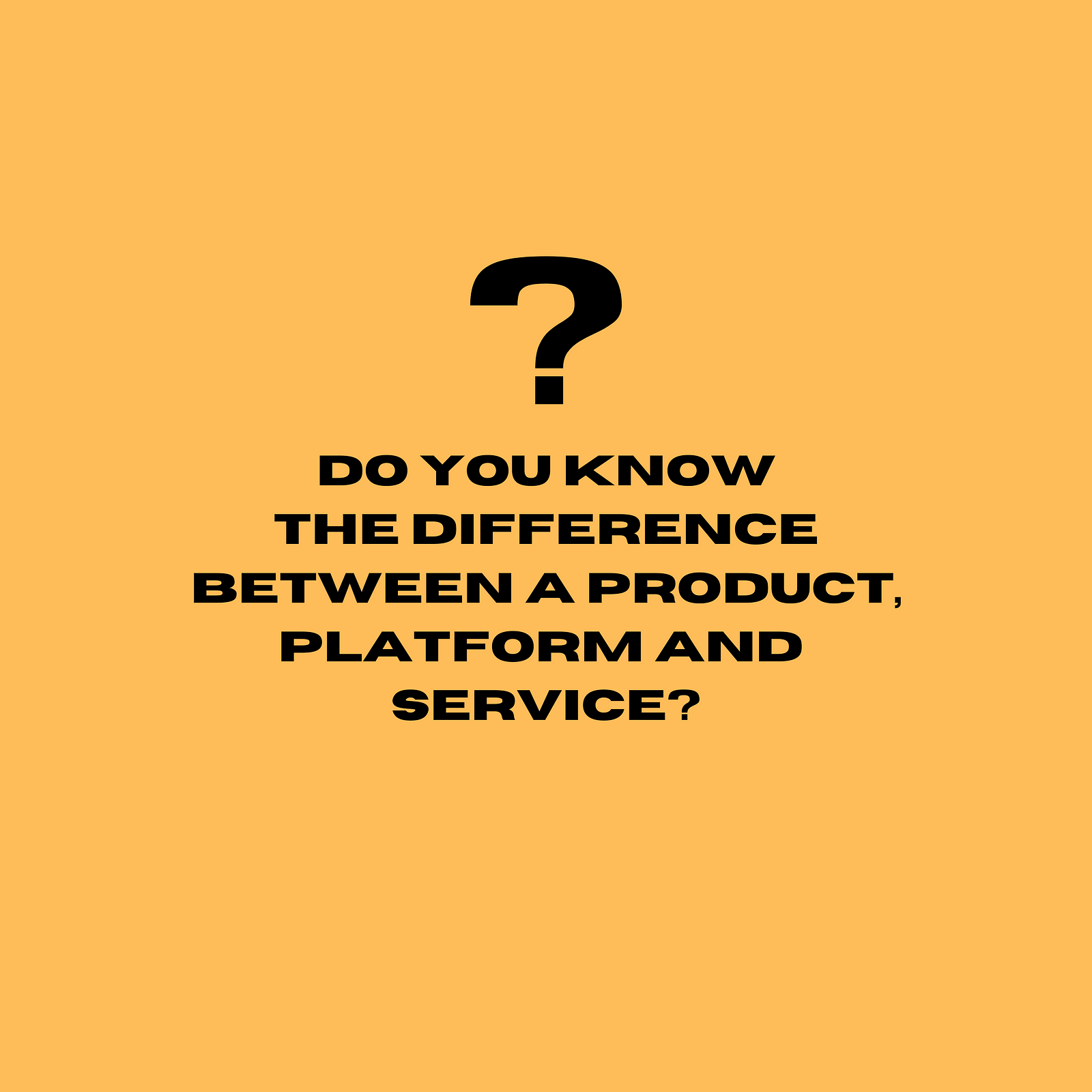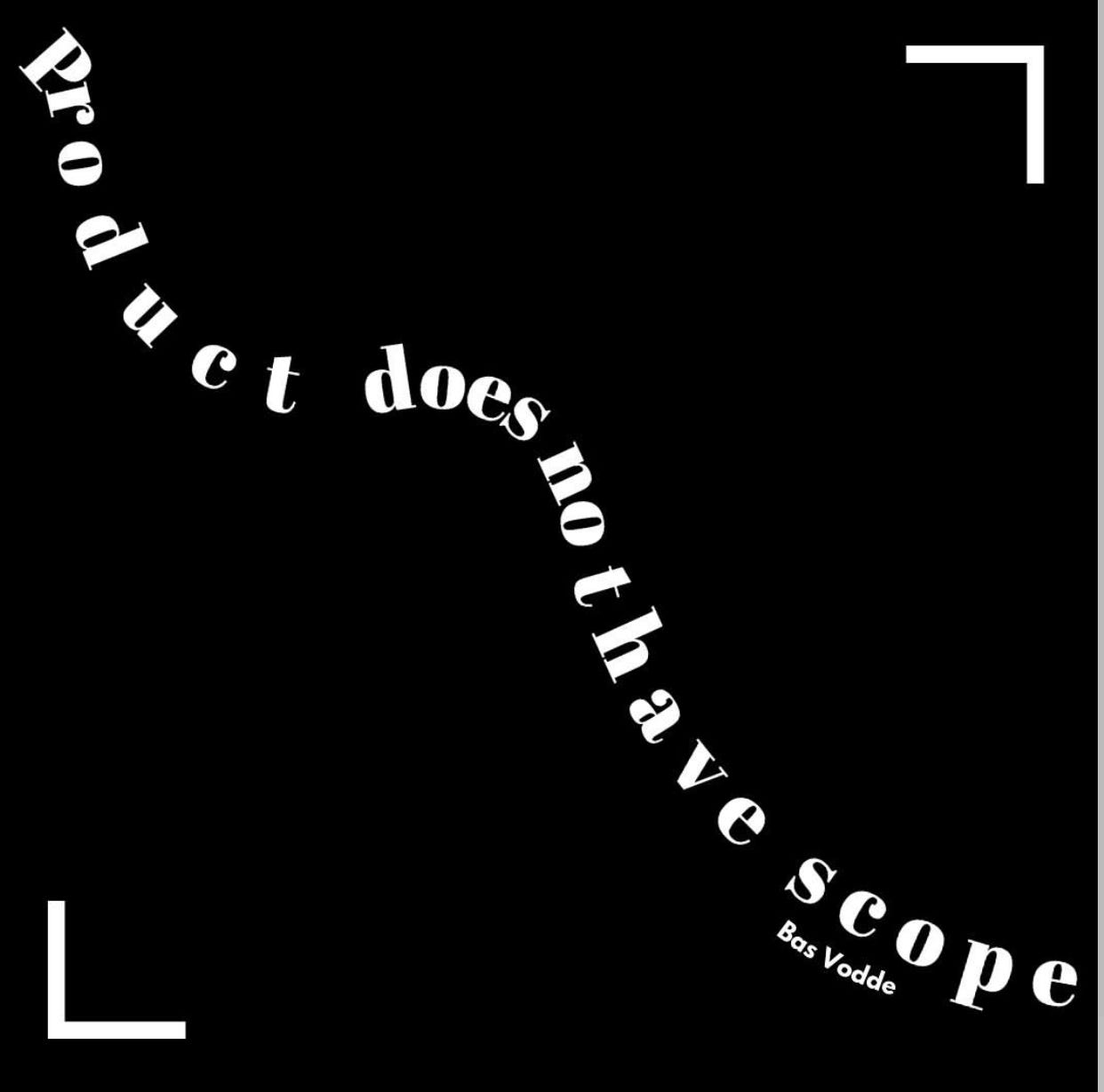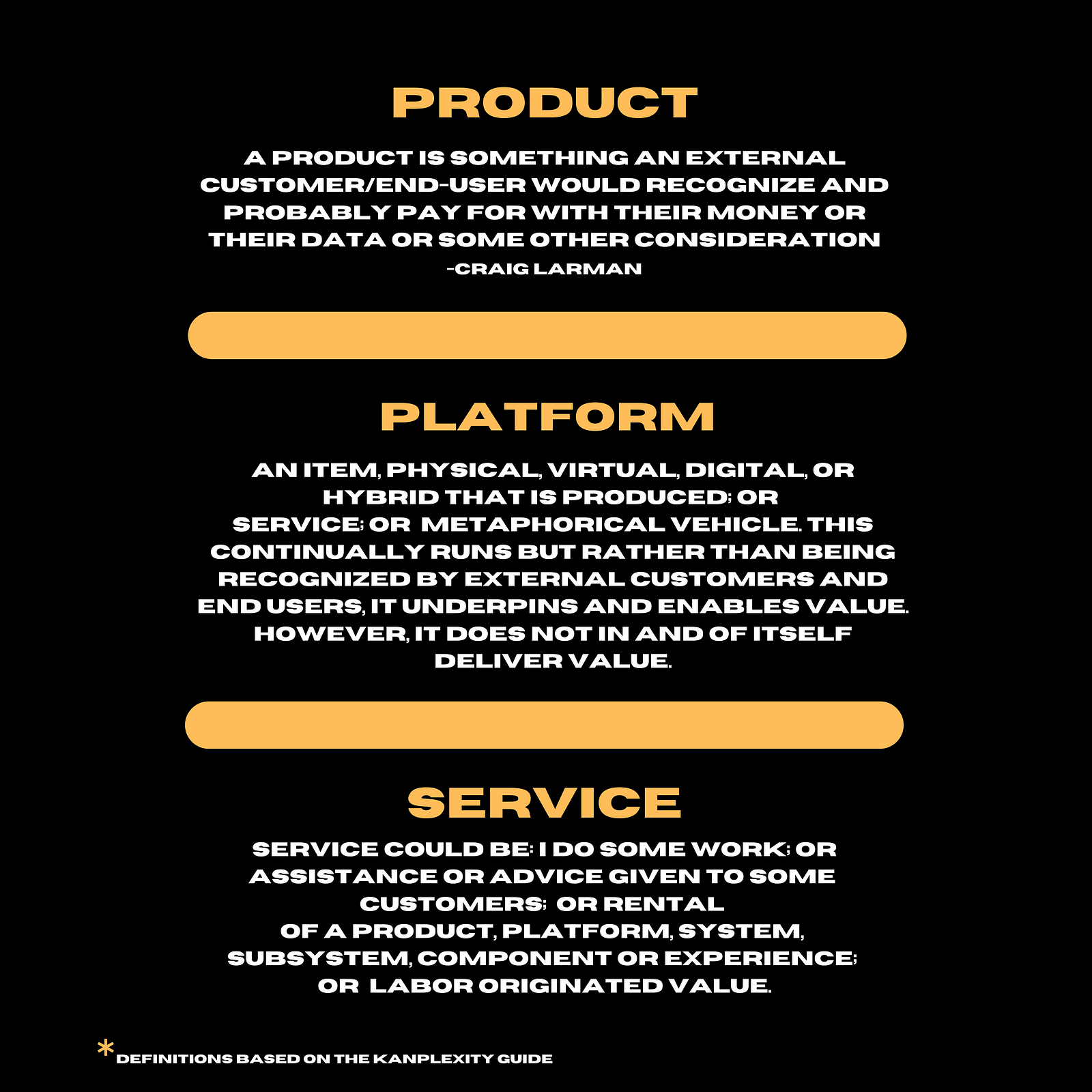This article makes references to the Kanplexity guide, which can be downloaded, free of charge, here.

If you have people in product development or product management, in Scrum for example, if you have a Product Owner who’s supposed to be on the hook for maximizing value … what is the product?
(I have a podcast episode on what is value, which is available here….)
Product is not project and vice versa
A lot of people conflate product with project even if I explain what product is.
It’s almost as if there’s an automatic substitution of the words.

I like what Bas Vodde, one of the co-creators of Large Scale Scrum (LeSS) says: “A product does not have scope”.
“A product does not have scope”
I thought yes! A product is for the long term. A project has a beginning, a middle, and an end.
We have lots of long-term initiatives. Are they all products then is the question.
I like what Craig Larman says, paraphrasing so it is not exactly what he said, but “a product is something that basically an external customer/end-user would recognize and probably pay for it with their money or their data or some other consideration”.
“a product is something that basically an external customer/end-user would recognize and probably pay for it with their money or their data or some other consideration”
Platform vs product and vice versa
I was doing some work with a German bank over the last year and I was doing some product owner training when someone said to me that their product was Salesforce.
I said, I don’t think your product is Salesforce because you’re not salesforce.com.
You don’t sell Salesforce. You just use Salesforce as a platform to underpin a service or product that you’re offering to your end customers. Correct?
They said yes, that is it.
What you actually have is a platform. It’s not bad to be on a platform. It’s just good to recognize the difference between a platform and a product.
The distinction between platform and product is not always so clear cut.
Sometimes a platform is a product.
The Kanplexity Definitions of product, platform and service
I came up with these definitions in the Kanplexity guide, available here.
Feedback is very welcome in terms of better definitions for what is a product, what is a platform, and maybe what is a service because they are interlinked.

Product
A product is:
- an item, physical, virtual, digital, or hybrid that is produced; OR
- a service offered for sale to serve a customer’s need or want; OR
- a metaphorical vehicle. A vehicle that continually runs like a digital product for delivering value, where external customers and end users know what is produced or served when we mentioned it and people are expected to pay for it somehow, maybe with their money, data or some other consideration.
A product can be built upon the building blocks of platforms, systems, subsystems, or components.
Examples of products include a chair, a cake that I eat or maybe use of any learning service.
Platform
A platform is:
- an item, physical, virtual, digital, or hybrid that is produced; OR
- service; OR
- metaphorical vehicle. This continually runs but rather than being recognized by external customers and end users, it underpins and enables value. However, it does not in and of itself deliver value.
It’s usually, but not always unrecognized by external customers and end users.
Salesforce would be recognized but it’s usually not recognized as an internal backend system. It’s often mistakenly labeled a product.
Examples of a platform include an enterprise resource planning system, a customer relationship management system, an e-learning system within the company and a podcast hosting redistribution system.
A platform can also be built upon the building blocks of systems, subsystems or components.
Selling platforms as products
If we sell those systems, they would be platforms as products. There’s lots of providers out there that actually have platforms that they sell as a product.
Service
Service could be:
- I do some work; OR
- Assistance or advice given to some customers; OR
- Rental of a product, platform, system, subsystem, component or experience; OR
- Labor originated value.
Examples include house painting, access to Amazon Prime, or professional printing of graphic designs with Canva.
Services vs. products
Some commoditized services are products. Does this matter? If you’re a Scrum product owner, you should be owning a product. A product is something that an external customer recognizes, and for one product you got one product owner.
If you have a number of platforms that are underpinning that product, the expectation is there’s still only one product owner for the product. We wouldn’t have a product owner for each platform.
For example, if your platform is a product, then you would have a product owner for that platform.
Sometimes maybe it doesn’t matter because the biggest consideration that we should worry about is whether we’re worrying about the short term or the long term.
Worry about the long term
To that extent → whether you’re working on a platform product or a service, you’re all worried about the long term, right?
Concluding remarks
The big distinction is that a project has a beginning, a middle, and an end. It’s an artificial construct if you think about it, to get some work done. It’s often used to improve products, platforms, and service.
But it’s usually not for the long term. Not unless you’re going to Mars, like Elon Musk.
Thank you.
